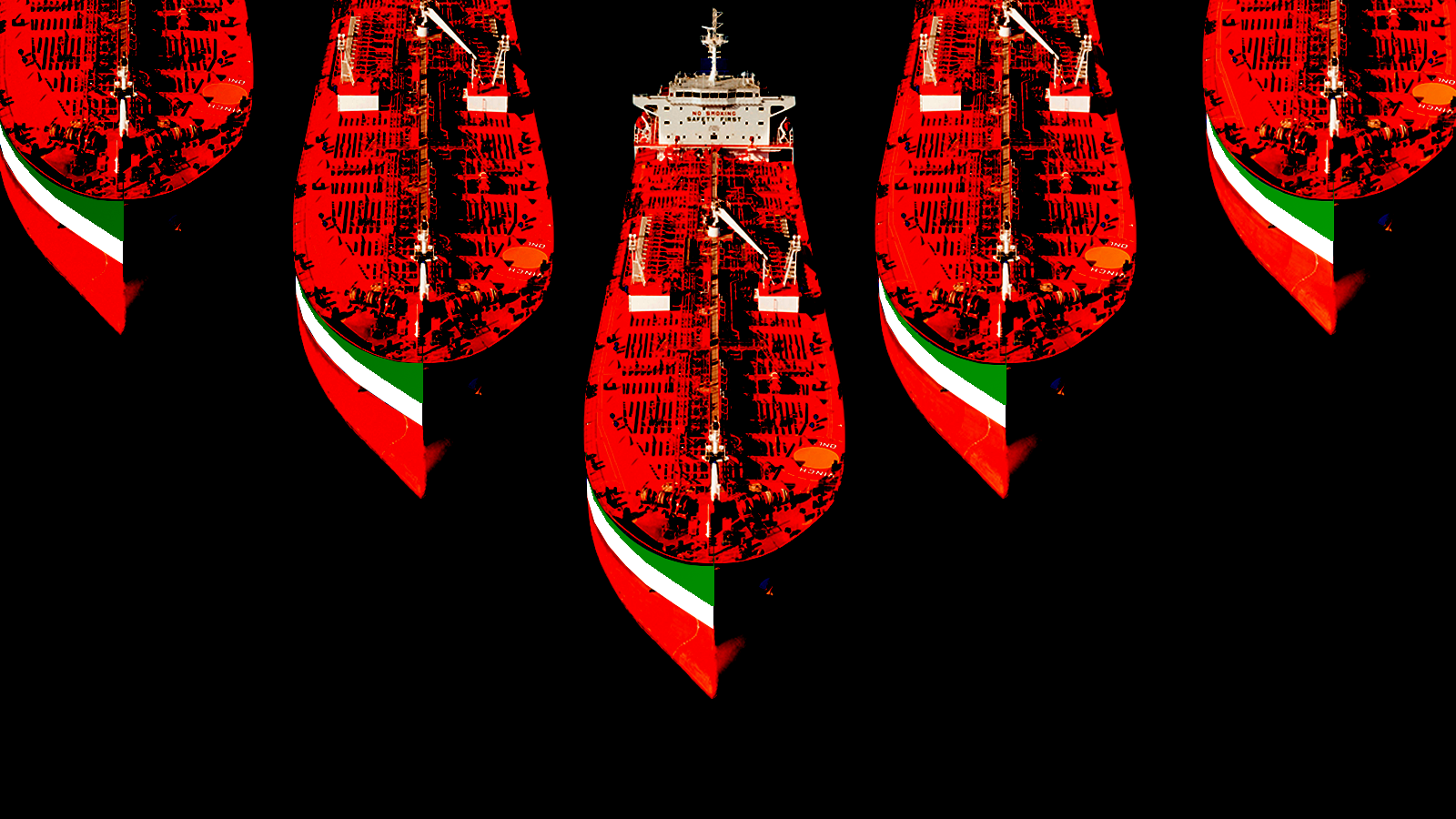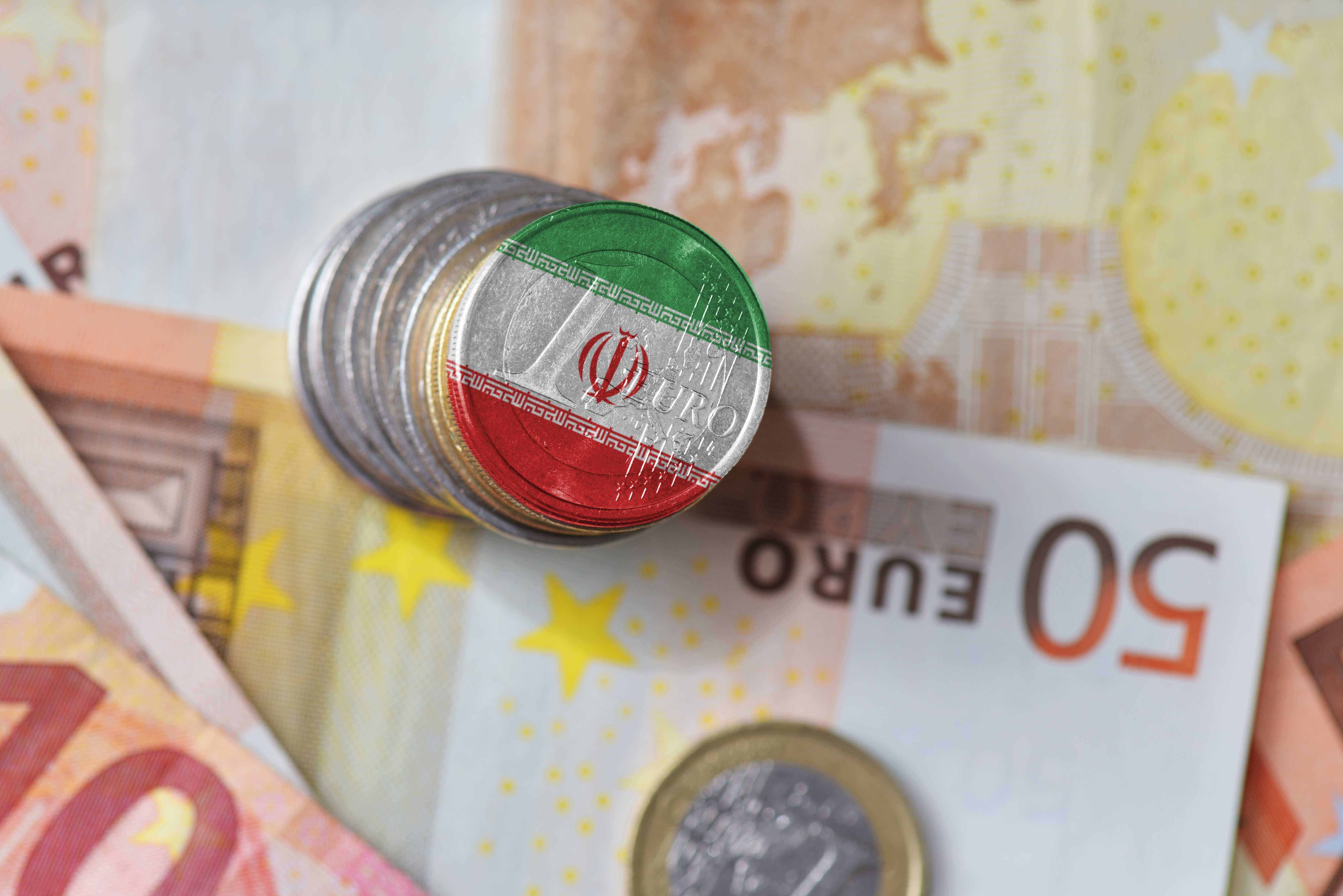The U.S. Department of the Treasury on Thursday sanctioned an international maritime network for facilitating the shipping of Iranian crude oil worth hundreds of millions of dollars to China.
The network has shipped millions of barrels on behalf of Iran’s Armed Forces General Staff (AFGS) and its sanctioned front company, Sepehr Energy Jahan Nama Pars (Sepehr Energy), the Treasury said in a news release. The sanctioned parties include entities and individuals based in China, India and the United Arab Emirates.
According to the Treasury, the AFGS uses foreign-based front companies and brokers to facilitate these oil sales and shipments.
”The Iranian regime remains focused on leveraging its oil revenues to fund the development of its nuclear program, to produce its deadly ballistic missiles and unmanned aerial vehicles, and to support its regional terrorist proxy groups,” Treasury Secretary Scott Bessent said.
For context: The maritime network’s designation came two days after the Trump administration reinstated a “maximum pressure” campaign on Iran, in an effort to stop the country from obtaining nuclear weapons.
In an executive order issued Tuesday, the administration also said Iran and its proxies were coordinating terrorist attacks abroad and “using agents and cyber-enabled means to target United States nationals living in the United States and other countries around the world for attacks, including assault, kidnapping, and murder.”
The White House said it would take steps to counter Iran’s efforts to evade or circumvent sanctions, including:
The news release singled out the SIRI, an oil tanker that the Treasury said is now operating under a different name off the coast of Singapore to conceal that it was previously sanctioned. The vessel has been carrying millions of barrels of Iranian crude oil on behalf of Sepehr Energy and the AFGS. The Treasury sanctioned the vessel’s master, Iranian national Arash Lavian, who it said falsified shipping documents and hid the SIRI’s identity.
The U.S. also added shadow fleet designations for a pair of Panama- and Hong Kong-flagged tankers that it said facilitated the transport of Iranian oil to China as well.
The measures are the latest to target Iran’s shadow fleet, following sanctions in October and on Dec. 3 and 19.
What it means and what’s next: The signing of the new presidential memorandum, which was followed shortly by the new administration’s first Iran-focused sanctions actions, signals an escalation in U.S. efforts to counter Iran’s nuclear ambitions and its destabilizing activities. By reinstating “maximum pressure,” the U.S. is signaling its intent to rigorously enforce sanctions, disrupt Iran’s financial and logistical networks, and eliminate pathways for Iran to fund or execute its activities.
The Treasury is expected to soon issue guidance to private industries, particularly those in shipping, insurance and port operations, highlighting the risks of violating U.S. sanctions tied to Iran or its proxies.
The network has shipped millions of barrels on behalf of Iran’s Armed Forces General Staff (AFGS) and its sanctioned front company, Sepehr Energy Jahan Nama Pars (Sepehr Energy), the Treasury said in a news release. The sanctioned parties include entities and individuals based in China, India and the United Arab Emirates.
According to the Treasury, the AFGS uses foreign-based front companies and brokers to facilitate these oil sales and shipments.
”The Iranian regime remains focused on leveraging its oil revenues to fund the development of its nuclear program, to produce its deadly ballistic missiles and unmanned aerial vehicles, and to support its regional terrorist proxy groups,” Treasury Secretary Scott Bessent said.
For context: The maritime network’s designation came two days after the Trump administration reinstated a “maximum pressure” campaign on Iran, in an effort to stop the country from obtaining nuclear weapons.
In an executive order issued Tuesday, the administration also said Iran and its proxies were coordinating terrorist attacks abroad and “using agents and cyber-enabled means to target United States nationals living in the United States and other countries around the world for attacks, including assault, kidnapping, and murder.”
The White House said it would take steps to counter Iran’s efforts to evade or circumvent sanctions, including:
- working with allies to complete the snapback of international sanctions and restrictions on Iran.
- a Treasury review as to whether financial institutions should adopt a ”Know Your Customer’s Customer” standard for Iran-related transactions.
- coordinated action to prevent Gulf countries from being used as transshipment points for sanctions circumvention.
The news release singled out the SIRI, an oil tanker that the Treasury said is now operating under a different name off the coast of Singapore to conceal that it was previously sanctioned. The vessel has been carrying millions of barrels of Iranian crude oil on behalf of Sepehr Energy and the AFGS. The Treasury sanctioned the vessel’s master, Iranian national Arash Lavian, who it said falsified shipping documents and hid the SIRI’s identity.
The U.S. also added shadow fleet designations for a pair of Panama- and Hong Kong-flagged tankers that it said facilitated the transport of Iranian oil to China as well.
The measures are the latest to target Iran’s shadow fleet, following sanctions in October and on Dec. 3 and 19.
What it means and what’s next: The signing of the new presidential memorandum, which was followed shortly by the new administration’s first Iran-focused sanctions actions, signals an escalation in U.S. efforts to counter Iran’s nuclear ambitions and its destabilizing activities. By reinstating “maximum pressure,” the U.S. is signaling its intent to rigorously enforce sanctions, disrupt Iran’s financial and logistical networks, and eliminate pathways for Iran to fund or execute its activities.
The Treasury is expected to soon issue guidance to private industries, particularly those in shipping, insurance and port operations, highlighting the risks of violating U.S. sanctions tied to Iran or its proxies.










